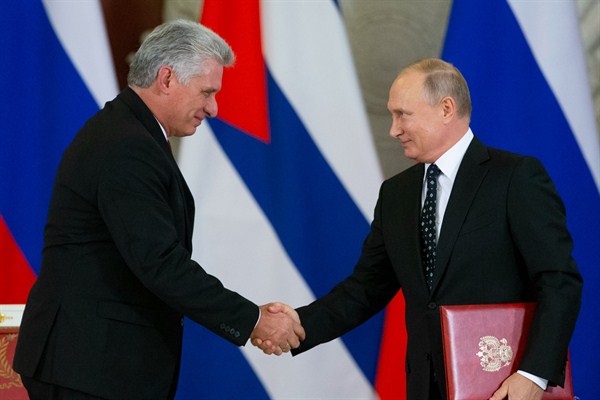Cuba faces a much tougher international environment today than it did just a few years ago. Relations with Latin America have cooled as relations with Washington have regressed to a level of animosity reminiscent of the Cold War. In response, Havana is looking to old ideological comrades in Moscow and Beijing to compensate for the deterioration of ties in its own backyard.
These setbacks abroad come at a time when the Cuban economy is vulnerable. Export earnings have been falling, foreign reserves are low, and the debt service burden is heavy, as Cuba tries to retire old debts that it renegotiated. Despite the economic reforms begun in 2011, domestic productivity is still weak, making Cuba dependent on foreign investment for capital to fuel growth.
A decade ago, progressive governments dominated Latin America. Cuba had friendly presidents in every major Latin American country except Mexico and Colombia, and even those two were not actively hostile. In Venezuela, Hugo Chavez saw himself as a protégé of Fidel Castro, promoting “21st-century socialism” in the hemisphere financed by his country’s vast oil wealth. At its peak, Venezuela provided about two-thirds of Cuba’s oil consumption at highly subsidized prices, with the cost offset by some 40,000 Cuban doctors and teachers serving Venezuela’s poor.

